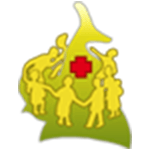Increasing Trust, Visibility to Encourage Vaccine Uptake in Cameroon
HIGHLIGHTS
- Many Cameroonians remain hesitant to receive a COVID-19 vaccine.
- Health workers are a priority group for encouraging widespread vaccine uptake, both for their frontline role and social influence.
- We co-designed solutions with local stakeholders that help health workers build patient trust in COVID-19 vaccines by highlighting social norms and making vaccinations and positive immunization experiences visible.
The Challenge
Health providers have been a priority group for vaccination in Cameroon since the initial distributions of COVID-19 vaccines through the COVAX initiative. In mid-2021, the country expanded vaccine eligibility to all Cameroonians 18 years of age and older; however, COVID vaccine uptake remains very low among all ages and occupations. Health providers are crucial, both for their role as frontline workers and the social influence they have on the general public’s perception of vaccines. Understanding and designing solutions for the behavioral challenges related to health providers’ acceptance and uptake of the vaccine is an important step to achieving widespread vaccination.
Our Approach
To inform the development of behavioral solutions to increase COVID-19 vaccination among health providers and the general population, we first conducted a rapid behavioral diagnosis consisting of a landscape literature review and qualitative interviews with providers, community members, and key stakeholders involved in vaccine roll-out.
Guided by these behavioral insights into the barriers and channels to vaccination, we worked with the Cameroon Ministry of Health, health providers, and other stakeholders involved in vaccination efforts to develop solutions. We refined these solutions through a collaborative, multi-day co-design workshop, where participants reviewed and reflected on the behavioral diagnosis findings, generated potential solutions alongside ideas42-developed designs from other work encouraging provider vaccine uptake, and created prototypes for a prioritized subset of new solutions. We also undertook iterative user testing activities to arrive at a final solution set and recommendations for implementation. The final solution set consists of:
- A professional learning forum for selected providers, moderated by a respected local professional expert, to learn more about the COVID-19 vaccine, hear testimonials, and answer questions. This solution increases trust in the quality, efficacy, and safety of the vaccine for attendees, their peers, and patients. The forum may also leverage providers’ identities to increase vaccine uptake.
- A referral card and bracelet. The referral card encourages providers and community members to recommend their colleagues, friends, and family get vaccinated, explaining why they should and how they can do so. The card personalizes the request to vaccinate and increases the visibility of vaccination. The bracelet, which patients receive once fully vaccinated, has the message, “Let’s protect our community. Let’s get vaccinated!” This message acts as a visual identifier that a provider or community member has received the COVID-19 vaccine, highlights social norms, and encourages sharing of positive immunization experiences.
Takeaway
In a rapidly changing landscape, understanding and considering the behavioral challenges influencing vaccine acceptance and uptake are important to any country’s efforts to control the COVID-19 pandemic. Many insights into hesitancy and uptake among health workers in Cameroon were also shared by the wider Cameroonian community, making the design and implementation of solutions that affect COVID-19 vaccine uptake in these groups both directly and indirectly an effective strategy.
Interested in our work applying behavioral science to global health? Email gh@ideas42.org or tweet at @ideas42 to join the conversation.
Partners










